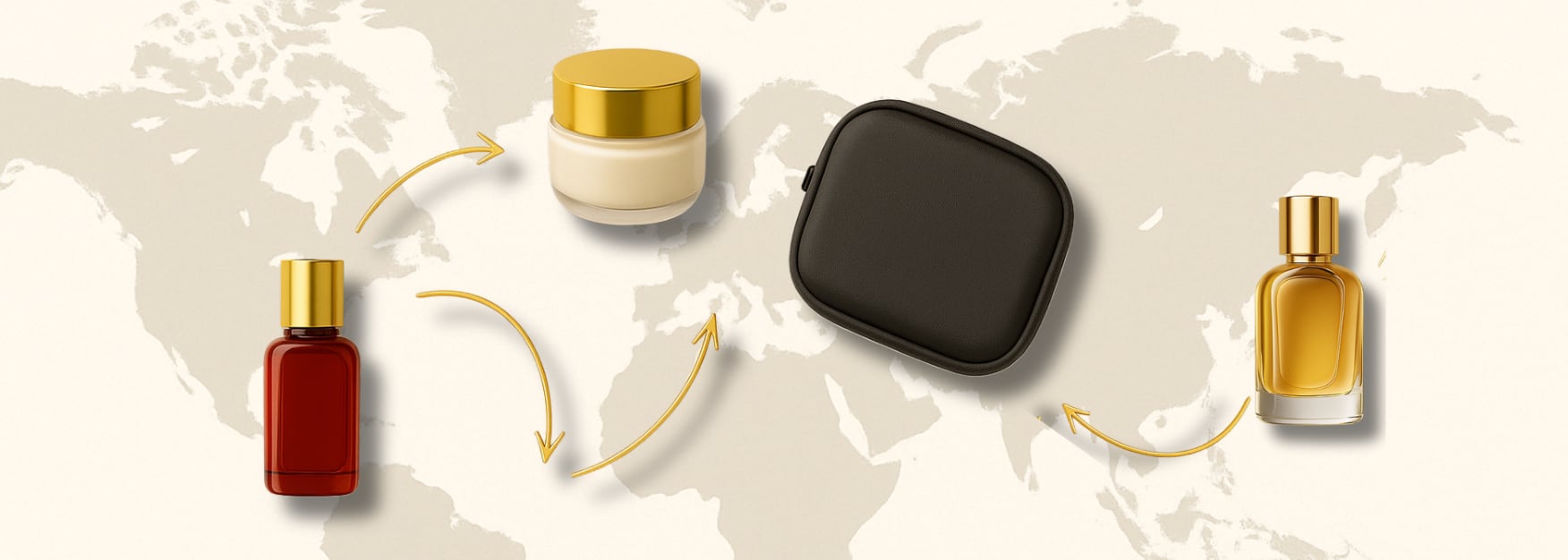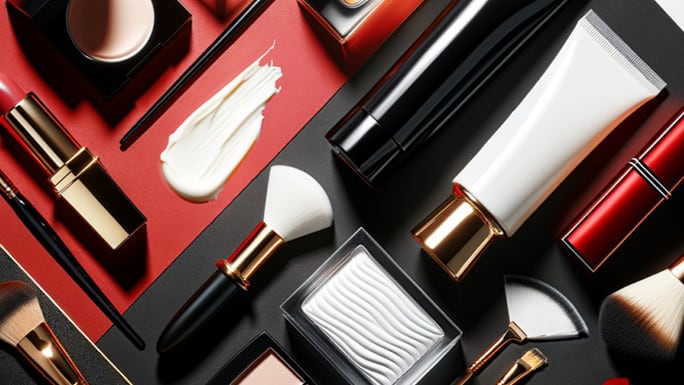The beauty industry is undergoing significant transformation, driven by sustainability, innovation, and consumer demand for transparency.
The recent Luxe Pack New York event from 7-8 May, which marked Meiyume’s debut, highlighted key trends, bringing together leading beauty brands to explore the future of packaging. At the event, the industry’s focus on smart packaging, material innovation, and sustainability was evident, reflecting shifts in both consumer behavior and brand strategies.
Beyond the trends observed at Luxe Pack, Meiyume’s Beauty Intelligence Platform (BIP) provided additional validation, uncovering and reinforcing the evolving directions in the packaging landscape. Through real-time, data-driven insights, the BIP identified and anticipated trends across packaging formats, ingredients, and innovations that are resonating with consumers – offering a deeper understanding of these trends and helping brands adapt to the rapidly changing market.
The US beauty and personal care products market, valued at approximately $102.73 billion in 2024, is projected to grow at a CAGR of 7.1% from 2025 to 2030.¹ As this market expands, beauty brands must innovate at an accelerated pace, especially in packaging, which now reflects deeper shifts in consumer behavior, sustainability values, and technology adoption.
Elevating brand clarity through transparent and minimalistic packaging
Minimalist design aesthetics are becoming a hallmark of the beauty industry. As brands seek to reduce visual noise and communicate core values with clarity, transparent packaging is rising in popularity. This design style, particularly prominent in skincare and wellness products, allows consumers to see the product directly, fostering trust and authenticity.
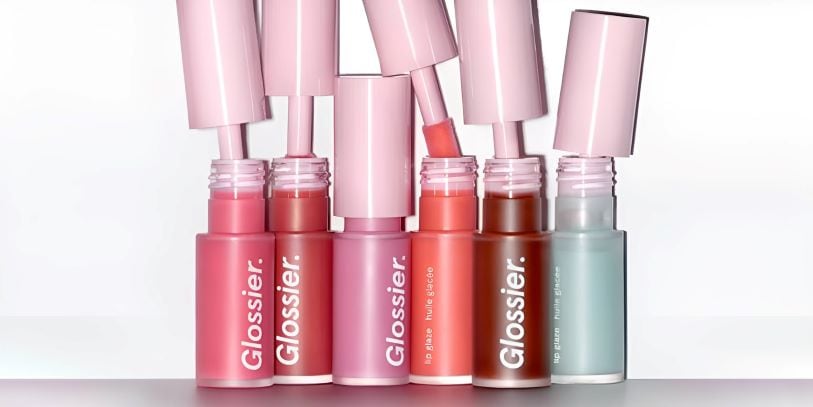
One standout example is Glossier’s Lip Glaze, where transparency and a minimalist design allow the product to shine. The clear packaging not only enhances the product’s visibility but also strengthens the brand’s identity, with the formula itself becoming an integral part of the branding. This simple yet effective packaging strategy highlights how transparency can drive consumer trust and loyalty, which are essential to brand success.
Material innovation: Sustainable choices for eco-conscious consumers
As consumers become more environmentally conscious, beauty brands are shifting towards sustainable materials like glass, bamboo, aluminum, and post-consumer recycled (PCR) plastics. These materials reduce the environmental footprint while aligning with the preferences of eco-conscious consumers.
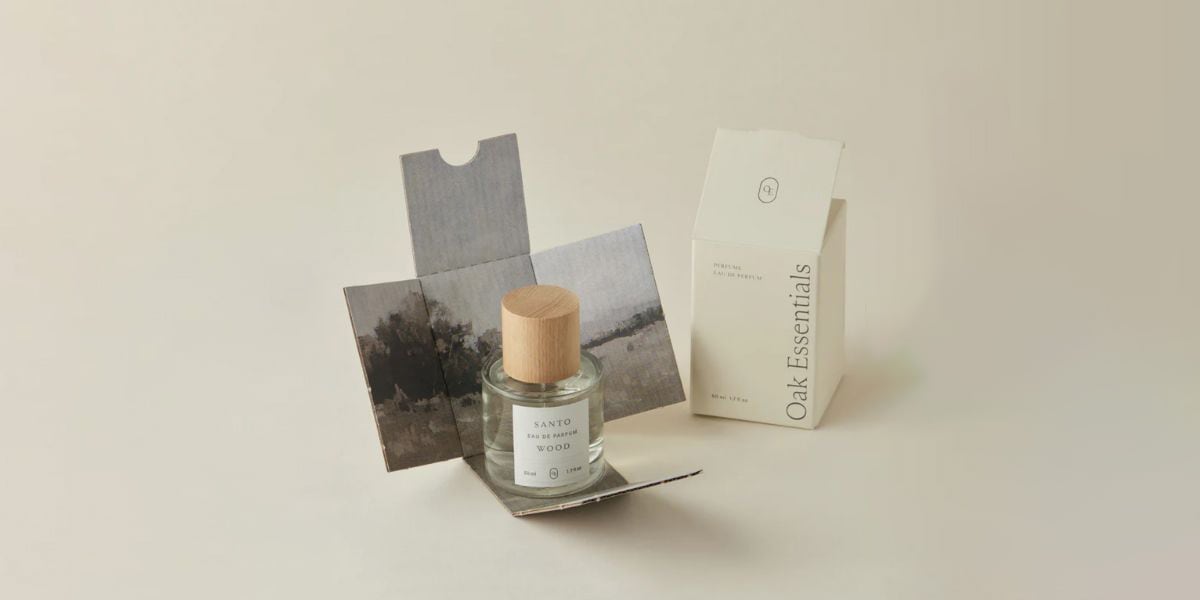
An excellent example of this trend is Oak Essentials’ Santo Wood Eau de Parfum, which features a wooden cap that complements the earthy fragrance of the perfume, emphasizing sustainability and a strong connection to nature. This packaging innovation not only reduces waste but also enhances the consumer experience by aligning with the values of environmental responsibility.
Innovation in beauty: Navigating market shifts with data-driven solutions
The demand for personalized beauty experiences are on the rise, and artificial intelligence (AI) is at the forefront of this shift. A 2024 Accenture survey revealed that 81% of beauty shoppers worry that products won’t meet promises, and over 50% are open to using AI to help guide their beauty product choices, indicating that consumers are becoming more attuned to AI-driven insights in beauty.²
Moreover, the AI-powered beauty market is rapidly expanding, with the sector projected to grow from $3.72 billion in 2024 to $9.44 billion by 2029.³ This growth is being driven by advancements in AI technology that enable personalized solutions across product development, packaging, and user experiences.
Addressing industry challenges: Need for smarter innovation
The beauty industry faces significant challenges, including making product decisions without real-time market validation, expanding into new regions without deep cultural insight, and navigating risk-heavy trial-and-error in formula and packaging design.
AI has proven to be a transformative tool in overcoming these challenges. For example, Estée Lauder‘s collaboration with OpenAI introduced 240 custom GPT-based tools that help various teams across its brands analyze consumer data and insights quickly.⁴ Similarly, Shiseido has implemented AI in its product development process, using data to enhance product personalization for specific markets.⁵
AI is also streamlining packaging development, with Prose introducing an AI-powered custom skincare line, offering over 15 million possible formula combinations, ensuring that each consumer receives a product customized to their unique needs.⁶ Such innovations are reshaping the way beauty products are developed and delivered, ensuring that brands can meet evolving consumer demands with speed and precision.
Partnering for success: Industry-leading capabilities
Meiyume’s BIP empowers brands with real-time, consumer-led, data-driven innovation. By identifying emerging consumer preferences, the BIP helps brands make informed decisions about ingredients, packaging formats, textures, and claims. For instance, cMOSS Beauty® leveraged the BIP’s insights to identify sea moss as a hero ingredient for its product range, a decision that played a crucial role in the brand’s successful launch.
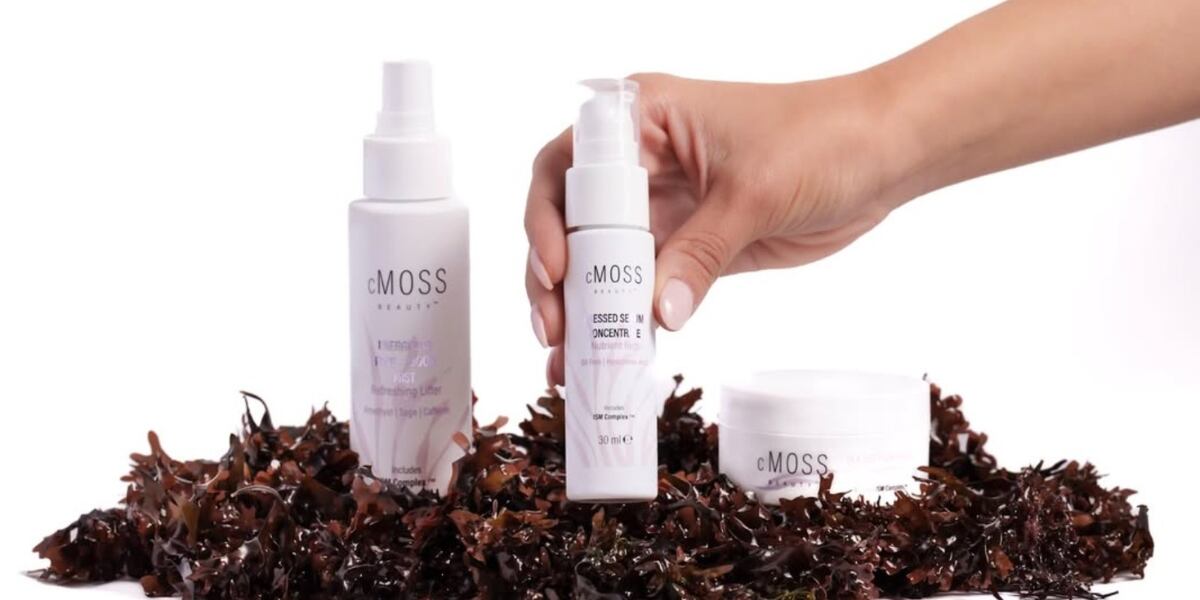
With its turnkey solutions, Meiyume provides a full suite of services – from formulation and sustainable packaging to PR boxing and consumer testing. This holistic approach allows brands to stay agile, relevant, and competitive in today’s fast-moving market.
Navigating sourcing challenges: Geopolitical impact on beauty supply chains
In today’s unpredictable geopolitical landscape, supply chain disruptions are a growing concern for beauty brands. From tariffs on imports from China to the 2023 Red Sea shipping crisis, beauty brands must navigate increasingly complex sourcing challenges.
Recently, the US-China trade war has added further strain, with tariffs swinging from 145% to 30% in a temporary truce – offering short-term relief but underscoring the persistent volatility and uncertainty that beauty brands must navigate in their sourcing and production strategies.⁷
Furthermore, the 2023 Red Sea shipping crisis caused massive disruptions, leading to shipping delays and higher freight costs that impacted global supply chains – including those for beauty-related products.
As these geopolitical tensions continue, beauty brands must pivot towards more resilient and agile sourcing strategies. This has led to a rise in regional sourcing, where US beauty companies are turning to closer manufacturing hubs in North America and Latin America to reduce risk and improve lead times. In fact, a KPMG report indicated that 69% of US executives plan to relocate their supply chains to the Americas within the next two years.⁸
Importance of regional sourcing and resilient supply chains
Beauty brands are increasingly adopting nearshoring and regionalization strategies to mitigate risks posed by global supply chain disruptions. Meiyume exemplifies this approach with its rich history since 1906 and strategic production network across the Americas, Europe, Africa and Asia-Pacific.
By sourcing from these regions, Meiyume offers brands agile lead times, reduced shipping risks, and regionalized distribution, compliance and regulations – ensuring continuity of supply even in uncertain times.
As geopolitical factors continue to influence global supply chains, the need for resilient and flexible supply networks has never been greater. Meiyume’s ability to deliver quality products with speed and precision, backed by a diverse sourcing network with over 1000+ trusted tier 1 suppliers, makes it the ideal partner for brands navigating today’s challenges.
Certifications and commitment to ethical sourcing
Meiyume’s commitment to sustainability and ethical sourcing is backed by a range of industry certifications. These include:
- EcoVadis Gold (2024) Recognizing Meiyume’s commitment to sustainable practices, environmental responsibility, and social ethics
- RSPO (Roundtable on Sustainable Palm Oil) For sustainable sourcing
- Sedex For ethical supply chain management
- SPICE For sustainable packaging sourcing
- FSC (Forest Stewardship Council) For responsible paper and wood sourcing
- GRS (Global Recycled Standard) For recycled materials
- ISO 14001 For environmental management practices
- amfori BSCI For ethical trade in sourcing practices
These certifications demonstrate Meiyume’s dedication to sustainable sourcing and ethical trade practices, ensuring that brands can trust Meiyume to deliver not only high-quality products but also environmentally responsible solutions for the beauty industry.
Navigating the future of beauty with innovation and expertize
As the beauty industry continues to innovate, brands must adapt to emerging trends while overcoming supply chain challenges. The latest trends in transparent packaging, material innovation, and AI-driven solutions are reshaping the industry. However, navigating these shifts requires the right partner – one that understands the complexities of today’s market and is equipped with the tools and expertize to drive success. That partner is a company like Meiyume.
With its data-driven innovation, sustainable solutions, and global sourcing network, Meiyume empowers beauty brands to thrive in a rapidly changing landscape. By partnering with Meiyume, brands can ensure they are ahead of the curve, ready to meet consumer demand, and equipped to overcome the challenges of the modern beauty industry.
References
- Grand View Research. U.S. Beauty And Personal Care Products Market Size, Share & Trends Analysis Report By Product (Skin Care, Hair Care, Oral Care), By End-use (Men, Women), By Distribution Channel, And Segment Forecasts, 2025 – 2030.
- Accenture. The empowered consumer.
- The Business Research Company. What Is Covered Under AI In Beauty And Cosmetics Market?
- OpenAI. Data-driven beauty: How The Estée Lauder Companies unlocks insights with ChatGPT.
- Shiseido. Shiseido ushers in new era of innovative cosmetics development by blending century of research with advanced AI technology.
- Prose. Hyper Personalization in Haircare and Skincare: Redefining the Beauty Industry with Custom Solutions.
- BBC. Markets rise as US and China agree to slash tariffs.
- KPMG. Global to local: Strategic shoring and the future of supply chains.

